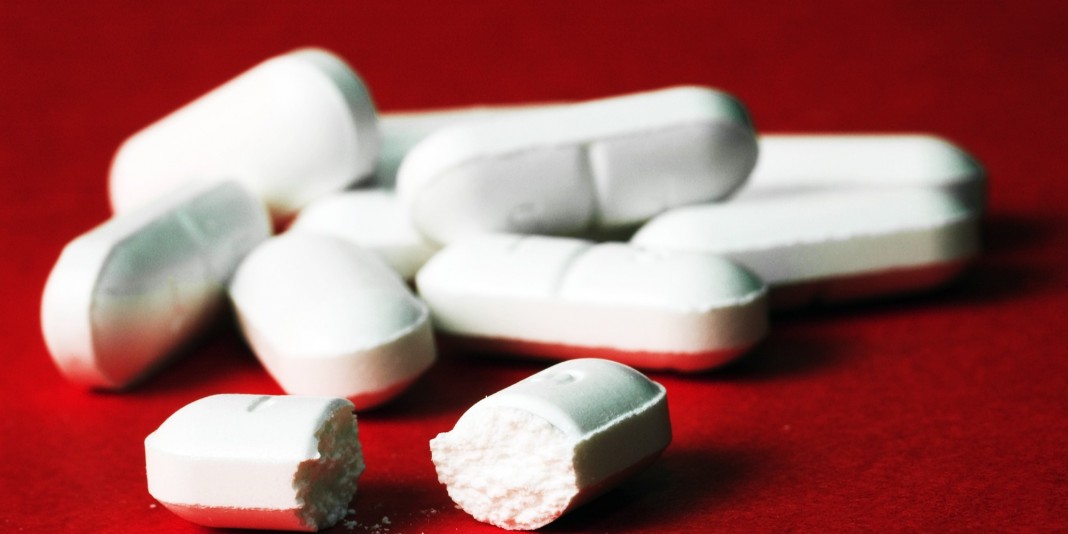Many of the parents in my practice have now heard “Dr. Erika’s Tylenol Rant.” Tylenol (acetaminophen or paracetamol) is probably my least favorite pharmaceutical. That’s saying something, coming from a naturopathic physician who rarely prescribes any pharmaceutical at all.
Earlier I posted an article that was published in the Missoulian’s opinion section about vaccines and autism (“It’s time to move beyond the autism/vaccine debate“). I got a lot of hate mail for that one, simply because I stated that we need to do research about other things that may cause autism, not just vaccines. (By the way, if you want to hear an unbiased perspective about vaccines and vaccine education, I highly recommend signing up for my vaccine class. It covers all the data about vaccines and autism, why they may be linked or may not be linked and what we should do about it.)
But here is Dr. Erika’s prediction: given what we know about the genetics involved in autism, over the next few years we should see more and more data linking acetaminophen use to ASD (autistic spectrum disorder).
Okay, so lets back-track.
It all starts with glutathione. Glutathione is the body’s most important endogenous antioxidant. Endogenous means that the body produces it (unlike antioxidants from chocolate, red wine or berries, for example). I’m sure you’ve heard of antioxidants – but let’s go over a bit of the biochemistry so you understand why they are so important.
“Oxidation” is a normal process in the body that happens when we use oxygen to create energy for the cell. The byproduct of oxidation is the creation of “free radicals” which are unstable molecules. Free radicals are “bad” because they can damage cell DNA, potentially causing permanent mutations. The body uses anti-oxidants to “scavenge” free radicals, neutralizing them so they can’t damage the DNA or any other part of the cell.
Glutathione is a sulfur-containing molecule that can absorb the impact of many of these free radicals. Once it absorbs a free-radical it needs to be converted back to the active form. (Bear with me, I’m getting to the point soon, I promise.) When the body takes a large oxidative “hit” it causes the depletion of active glutathione. The result is lots and lots and lots of oxidative damage.
Glutathione is especially important because it is active in the brain, unlike most other antioxidants. Can you imagine what would happen if you deplete glutathione in the brain? You end up with oxidative damage, inflammation and brain injury.
So guess what pharmaceutical is known for depleting glutathione? You guessed it, acetaminophen (Tylenol).
Tylenol is actually somewhat famous for depleting glutathione. Tylenol overdoses (which occur at remarkably low doses compared to other pharmaceuticals, by the way) cause massive liver damage. I mentioned this earlier in my “don’t suppress a fever (and why I don’t like Tylenol)” post. It has to do with the way it is processed in the liver – the chemical it is converted to requires a HUGE amount of glutathione to make it less toxic. Acetaminophen, in fact, is the number 1 cause of liver failure in the U.K., and the 2nd most common cause in the U.S. Read the rest of my “don’t suppress a fever” post for more information.
Back to autism and Autistic Spectrum Disorders (I’ll abbreviate ASD from now on). At this point there is quite a bit of data about glutathione and ASD – to the point where glutathione levels and enzymes involved in glutathione production could actually predict ASD.It makes a lot of sense, actually, given what we know about oxidative damage in the brain. Many children with ASD have poor transsulfuration and methylation – they can’t make glutathione and even worse, they can’t activate many neurotransmitters in the brain.
So this is why Tylenol could possibly trigger autism in kids who are genetically susceptible. Please understand me on this one – not every child who gets Tylenol will get autism. And not every child who has the gene and gets Tylenol will get autism! I believe that developing ASD is a combination of genes and environmental insult – basically you must be genetically predisposed and then be exposed to a multitude of things that deplete glutathione. (This is probably why vinyl flooring has been linked to autism – detoxfying the phthalates depletes glutathione too.)
I want you guys to understand that this isn’t just Crazy Dr. Erika’s hypothesis (though I’ve been suspecting it for years). Now there is new research that prenatal and perinatal exposure to acetaminophen is linked to autism. (Thanks to one of my readers for finding that study!) There is also research that using Tylenol after the MMR vaccine may cause autism.
So here’s the bottom line: AVOID acetaminophen. Do not give acetaminophen before or after your child’s vaccinations. Not only can it trigger autism, it is also linked to a decreased immune response to the vaccine. If your child has had a bad vaccine reaction with or without Tylenol use please see my other blog post What To Do If Your Child Has A Vaccine Reaction.
So I know the next question you are going to ask: “so should I just give my baby ibuprofen, then?” Well…maybe?
Some physicians have concerns that ibuprofen and other NSAIDS can cause kidney damage. This is well documented, but whether that applies to the low doses given to children is yet to be seen. Here is the bottom line:avoid pain-relievers whenever possible. Never assume that your baby’s crankiness is due to pain – try other remedies to soothe him/her first, use the drugs as a last resort. I always like to try 1/2-1 ml of Lemon balm glycerite with Annika first – it is a very mild calming herb that is incredibly safe. When used during a cold/flu it has the added benefit of being antiviral.
Source:
http://naturopathicpediatrics.com/2013/07/15/just-say-no-to-tylenol-acetaminophen-causes-autism/








